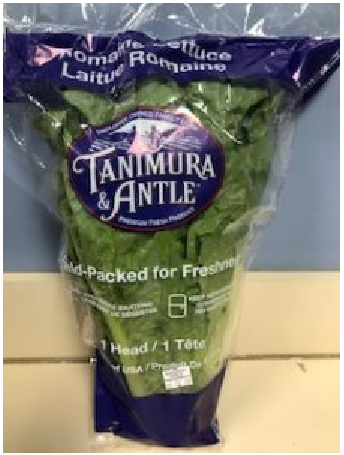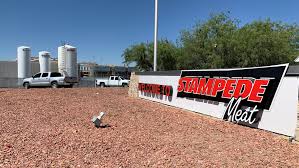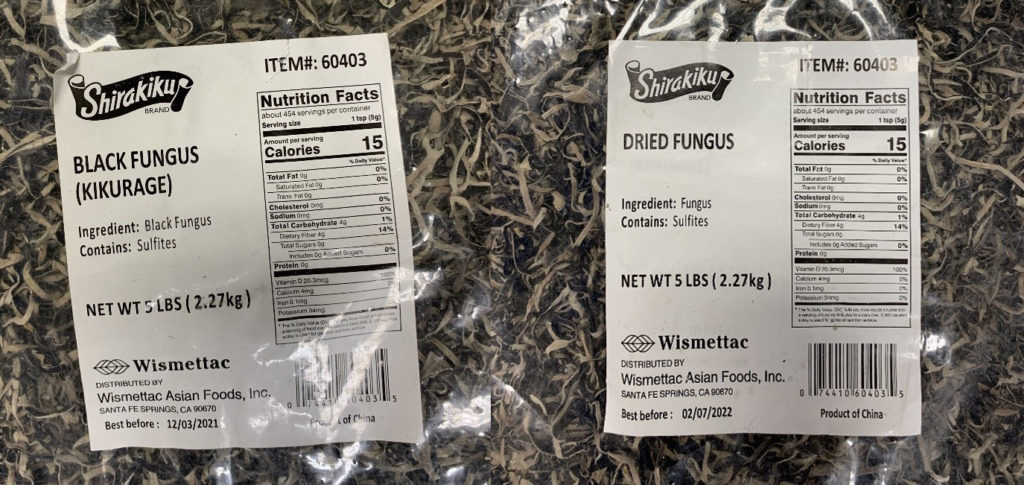recalled packaged single head romaine lettuce under the Tanimura & Antle brand. The product is labeled with a packed date of 10/15/2020 or 10/16/2020 due to possible contamination with E. coli 0157:H7. Packages contain a single head of romaine lettuce with the UPC number 0-27918-20314-9. There have been no reported illnesses associated with the recalled product. The recall is based on the test result of a random sample collected and analyzed by the Michigan Department of Agriculture and Rural Development as part of their routine sampling program. A total of 3,396 cartons of potentially affected product were distributed in the United States to the following states: AK, OR, CA, TX, AR, OK, IN, NE, MO, TN, WI, NM, SC, WA, NC, OH, VA, MA, PR, and IL. The potentially affected product was shipped in cases packed in the 12, 15, 18, or 24 heads per case. According to the Michigan Department of Agriculture, the lettuce sample was collected at a Walmart in Comstock Park. The Michigan Department of Health and Human Services laboratory “determined that the strain of E. coli recovered from the product sample is highly related genetically to E. coli causing two recent illnesses in Michigan.” @ https://www.fda.gov/safety/recalls-market-withdrawals-safety-alerts/tanimura-antle-voluntary-recalls-packaged-single-head-romaine-lettuce-due-potential-e-coli-0157h7#:~:text=Out%20of%20an%20abundance%20of,E.%20Coli%200157%3AH7
ruth
Out of an abundance of caution, Tanimura & Antle Inc. is voluntarily recalling its packaged single head romaine lettuce under the Tanimura & Antle brand, labeled with a packed on date of 10/15/2020 or 10/16/2020, due to possible contamination with E. Coli 0157:H7. Packages contain a single head of r
ruth
The Meatingplace reported that the state of New Mexico on Thursday ordered Stampede Meat to shut down its plant in Sunland Park for two weeks to stem COVID-19 infections among the company’s workers. The New Mexico Environment Department (NMED) issued the order because state health teams have at least four “rapid responses” by state health teams to infections among Stampede employees in the last two weeks. The agency then guides the company on testing, quarantining, disinfecting, and best safety practices. More than 50 cases of employee infections at Stampede were identified during several rounds of state testing in May. The company said it implemented more safety measures to limit spread, according to local media reports. @ https://www.meatingplace.com/Industry/News/Details/95420
Meatingplace.com is the online community for North American beef, pork and poultry processors.
ruth
The CDC reported that at least 701 people from 14 states had been infected with Cyclospora cayetanensis that had trace evidence to bagged salad mixes containing iceberg lettuce, carrots, and red cabbage manufactured at Fresh Express facility in Streamwood, IL. On June 19, 2020, the company recalled the bagged salad mixes. The PHA of Canada is also investigating an outbreak of cyclosporiasis infections occurring in three Canadian provinces in which Fresh Express brand salad products. As a result, the FDA inspected the facility. The FD issued the facility a Form FDA 483. During the outbreak, environmental samples tested by the FDA detected the presence of Cyclospora in the surface water of a canal near a farm suspected of being a source of the red cabbage in your bagged salad mix. The FDA requested that Fresh Express improve traceability to get timely information as required. @ https://www.fda.gov/inspections-compliance-enforcement-and-criminal-investigations/warning-letters/fresh-express-inc-609899-div-chiquita-brands
CGMP/Food/Prepared, Packed or Held Under Insanitary Conditions/Adulterated
As of November 4, 2020, the CDC declared that this outbreak is over. On September 23, 2020, Wismettac Asian Foods, Inc. recalled Shirakiku brand imported dried fungus. This product was labeled as Shirakiku brand Black Fungus (Kikurage) with UPC Code 00074410604305, imported from China. The product caused 55 illnesses with 6 hospitalizations, and no death was reported. States with Cases: AZ (1), CA (33), CT (1), GA (1), IL (5), LA (1), NJ (2), NY (1), OR (1), PA (2), WI (2). The product was distributed in six-packs of five-pound bags to restaurants in AR, CA, CO, CT, DE, DC, FL, GA, HI, IA, IL, IN, LA, MA, MD, MI, MN, MO, MS, NC, NV, NJ, NY, OH, OR, PA, SC, TN, TX, VA, WA, and WI. @ https://www.fda.gov/food/outbreaks-foodborne-illness/outbreak-investigation-salmonella-stanley-wood-ear-mushrooms-dried-fungus-september-2020?utm_medium=email&utm_source=govdelivery
CDC declares outbreak over. FDA’s investigation is complete.




